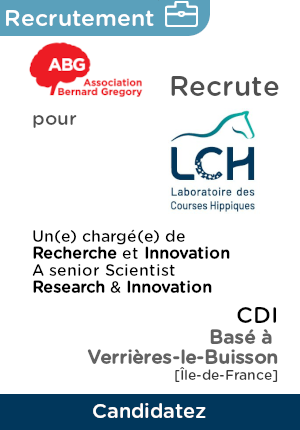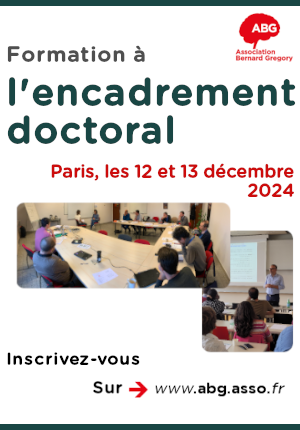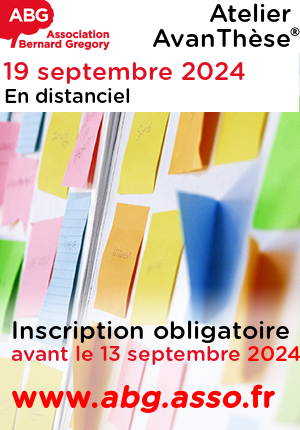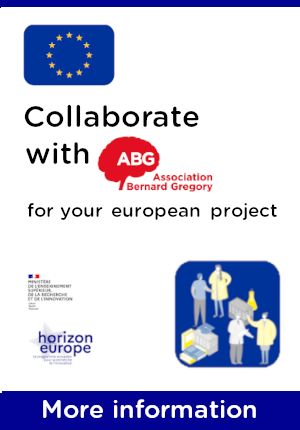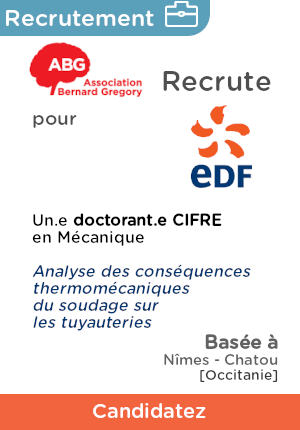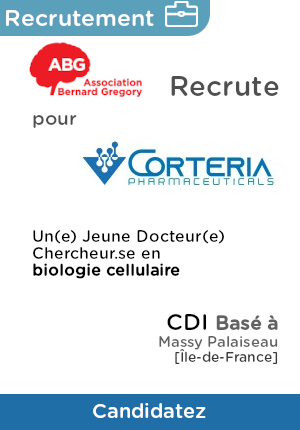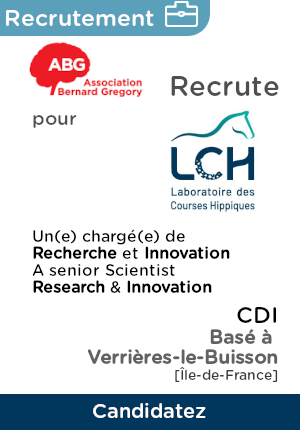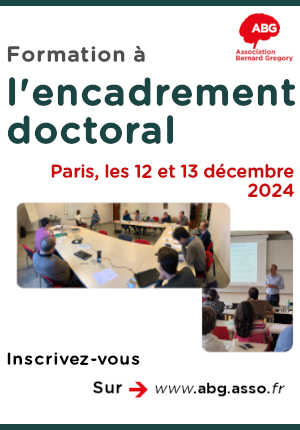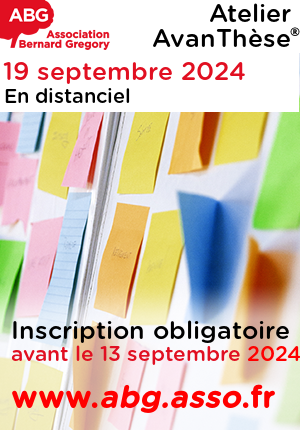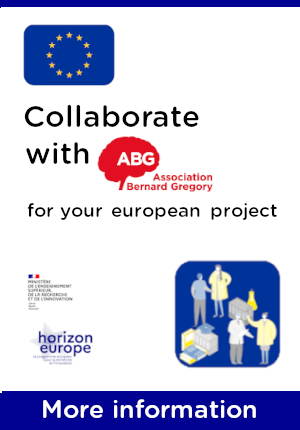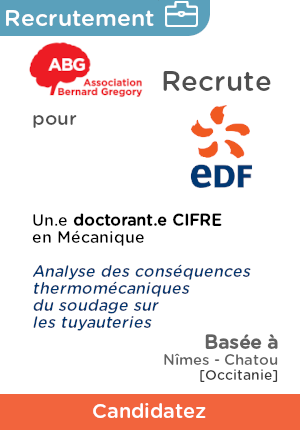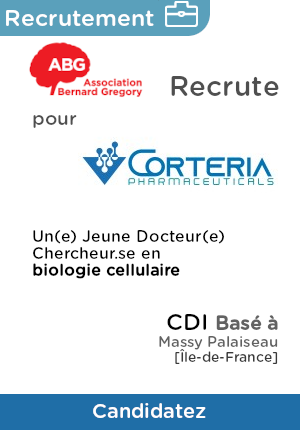Doctorat en biologie moléculaire ou en biochimie / PhD position in molecular biology or biochemistry
| ABG-124451 | Sujet de Thèse | |
| 06/06/2024 | Autre financement public |

- Biochimie
- Biologie
- Biotechnologie
Description du sujet
Doctorat en biologie moléculaire ou en biochimie
L'Unité de recherche en physiologie moléculaire de l'Institut de recherches cliniques de Montréal (IRCM), dirigée par le Dr Mathieu Ferron, cherche à recruter au moins un étudiant au doctorat pour réaliser des projets passionnants sur la biologie cellulaire des cellules bêta pancréatiques.
La gamma-carboxylation est une modification post-traductionnelle qui cible les résidus d'acides glutamiques, se produit dans le réticulum endoplasmique (RE) et affecte la fonction de protéines sécrétées. Notre groupe a récemment identifié une nouvelle protéine gamma-carboxylée, ERGP (Endoplasmic Reticulum Gla Protein) qui prévient le dysfonctionnement des cellules bêta en présence d’un stress métabolique (Cell Reports 2023). Nos résultats suggèrent qu’ERGP, lorsque gamma-carboxylée, module l’entrée de calcium par les canaux CRAC composés de STIM1 et ORAI.
Notre objectif actuel est de déchiffrer les mécanismes moléculaires et les voies de signalisation cellulaires par lesquels ERGP et la gamma-carboxylation régulent les flux calciques et la sécrétion d'insuline dans les cellules bêta de souris et humaines. Outre ERGP, nous avons découvert plusieurs nouvelles protéines gamma-carboxylées dans les cellules bêta, et qui semblent impliquées dans le repliement des protéines et le contrôle de la qualité dans le RE. Par conséquent, nous cherchons également à comprendre comment la gamma-carboxylation contrôle la machinerie de repliement des protéines dans le RE. Notre objectif à long terme est d'identifier de nouvelles cibles potentielles pour le traitement ou la prévention du diabète de type 2.
Publications récentes du laboratoire sur ce sujet:
Novel Function of Vitamin K-Dependent Carboxylation in Beta-Cells and Diabetes. Trends Endocrinol Metab. 2024. (PMID: 38429160)
Vitamin K-dependent carboxylation regulates Ca2+ flux and adaptation to metabolic stress in beta-cells. Cell Reports. 2023. (PMID: 37171959)
The half-life of the bone-derived hormone osteocalcin is regulated through O-glycosylation in mice, but not in humans. eLife. 2020. (PMID: 33284103)
VKOR paralog VKORC1L1 supports vitamin K-dependent protein carboxylation in vivo. JCI Insight. 2018 (PMID: 29321368)
Proprotein convertase furin regulates osteocalcin and bone endocrine function. J Clin Invest. 2017 (PMID: 28972540)
Sommaire des responsabilités:
Le projet tirera parti d'un large éventail d'approches pour découvrir les fonctions cellulaires, moléculaires et physiologiques d’ERGP et de la gamma-carboxylation dans les cellules bêta. Ce projet nécessitera des analyses en microscopie (imagerie Ca2+, FRET, etc.), de protéomique (BioID, modifications post-traductionnelles, etc.) et l'utilisation de modèles de souris génétiquement modifiées par CRISPR-Cas9. Les résultats pourront ensuite être validés chez l’humain en utilisant des îlots pancréatiques de donneurs avec ou sans diabètes.
Financement:
Ce projet est financé par les Instituts de recherche en santé du Canada (IRSC). Bourse annuelle minimale de 28 000 $ (doctorat) et 45 000 $ (post-doctorat) avec possibilité de bonus !
(English version)
Doctoral studies in molecular biology or biochemistry
The Montreal Clinical Research Institute’s (IRCM) Molecular Physiology Research Unit, headed by Dr. Mathieu Ferron, is seeking to recruit at least one PhD student to carry out exciting projects on the role of the post-translational modification gamma-carboxylation in pancreatic beta cell function and in diabetes.
Gamma-carboxylation targets glutamic acid residues, occurs in the endoplasmic reticulum (ER) and affects the function of secreted proteins. Our group recently discovered that gamma-carboxylation prevents beta cell dysfunction (Cell Reports 2023). We have identified endoplasmic reticulum Gla protein (ERGP) as a novel gamma-carboxylated ER-resident Ca2+-binding protein expressed in beta cells. Our findings suggest that gamma-carboxylated ERGP protects cells against Ca2+ overfilling by restraining store-operated Ca2+ entry (SOCE).
Our current aim is to decipher the molecular and cellular mechanisms by which ERGP and its gamma-carboxylation regulate calcium flux and insulin secretion in mouse and human beta cells. In addition to ERGP, we have discovered several new gamma-carboxylated proteins in beta cells, which are possibly involved in protein folding and quality control in the ER. Therefore, we are also seeking to understand how gamma-carboxylation intersects with the protein folding machinery in the ER. Our long-term goal is to identify new potential targets for the treatment or prevention of type 2 diabetes.
This project is funded by the Canadian Institutes of Health Research (CIHR). The Ferron laboratory has an internationally recognized expertise in the molecular mechanisms of metabolic diseases.
Recent key publications from our laboratory on gamma-carboxylated proteins:
Novel Function of Vitamin K-Dependent Carboxylation in Beta-Cells and Diabetes. Trends Endocrinol Metab. 2024. (PMID: 38429160)
Vitamin K-dependent carboxylation regulates Ca2+ flux and adaptation to metabolic stress in beta-cells. Cell Reports. 2023. (PMID: 37171959)
The half-life of the bone-derived hormone osteocalcin is regulated through O-glycosylation in mice, but not in humans. eLife. 2020. (PMID: 33284103)
VKOR paralog VKORC1L1 supports vitamin K-dependent protein carboxylation in vivo. JCI Insight. 2018 (PMID: 29321368)
Proprotein convertase furin regulates osteocalcin and bone endocrine function. J Clin Invest. 2017 (PMID: 28972540)
Summary of responsibilities
The project will take advantage of a broad range of approaches to uncover the cellular, molecular, and physiological functions of ERGP and gamma-carboxylation in beta cells. The PhD student will need to master and/or be willing to learn basic molecular and cell biology methods such as molecular cloning, cell culture, immunoprecipitation and immunoblot techniques, and microscopy (Ca2+ imaging, FRET, etc.). This project will also require proteomics analyses (e.g. BioID, post-translational modifications, etc.) and the use of genetically engineered mouse models. Important findings will be further validated using human pancreatic islets. Under the supervision of the lab director (Dr Ferron), the PhD student will be responsible for independently designing and executing experiments, analyzing data, presenting results at laboratory meetings and conferences (local and international), and writing manuscripts for publication in scientific journals. In-person work is mandatory for this position.
Financial support
28 000 CAD/year (minimum).
Nature du financement
Précisions sur le financement
Présentation établissement et labo d'accueil
L’IRCM est situé au coin de la rue St-Urbain et de l’avenue des Pins, près du Centre-Ville et du Plateau Mont-Royal. Les métros Place-des-Arts (ligne verte) et Sherbrooke (ligne orange) sont à 10 minutes de marche. Nous sommes connectés par plusieurs pistes cyclables dont celles sur la rue St-Urbain et l’avenue des Pins. Nous avons un espace de stationnement sécuritaire pour les vélos. Il y a également plusieurs stationnements disponibles dans le secteur qui offrent des forfaits journaliers et mensuels à prix raisonnable
L’IRCM est une institution de recherche autonome et sans but lucratif, affiliée à l’Université de Montréal et associée à l’Université McGill. En outre, la clinique de l’Institut est associée au Centre hospitalier de l’Université de Montréal (CHUM). Les chercheurs et chercheuses de l’IRCM sont titulaires de nominations universitaires à l’Université de Montréal et la plupart sont également membres associé.e.s à l’Université McGill. Situé en plein cœur du milieu universitaire montréalais, l’IRCM attire les meilleurs talents de partout au monde. Chaque année, plus d’une centaine d’étudiant.e.s à la maîtrise et au doctorat, ainsi qu’une cinquantaine de stagiaires postdoctoraux, supervisé.e.s par des chercheurs et chercheuses chevronné.e.s dans différents domaines de la recherche biomédicale, viennent parfaire leur formation scientifique à l’Institut.
La formation des étudiant.e.s, stagiaires et employé.e.s est une mission intégrale de l’IRCM. Nous avons une équipe entièrement dévouée aux affaires académiques, avec la mission principale d’offrir un environnement de travail respectueux et un soutien de qualité supérieure aux membres de la communauté scientifique. Le Code de Conduite Collégiale de l’IRCM spécifie clairement que le respect des personnes est une valeur centrale de notre institution, et nous reconnaissons la diversité comme une force et une source de richesse. L’IRCM s’efforce d’offrir un environnement qui favorise et soutient l’inclusion et la représentation juste des femmes, des membres de la communauté LGBTQ+, des personnes vivant avec un handicap et des personnes des minorités ethniques, culturelles et religieuses.
(English version)
The IRCM is located at the corner of rue St-Urbain and avenue des Pins, near downtown and Plateau Mont-Royal. The Place-des-Arts (green line) and Sherbrooke (orange line) metros are a 10-minute walk away. We are connected by several bike paths, including those on rue St-Urbain and avenue des Pins. We have secure bicycle parking. The IRCM is an autonomous, not-for-profit research institution, affiliated with the Université de Montréal and associated with McGill University. All IRCM researchers hold university appointments at the Université de Montréal, and most research directors are also associate members of McGill University. Located in the heart of Montreal's academic community, the IRCM attracts the best researchers. Every year, more than a hundred master's and doctoral students, as well as some fifty postdoctoral fellows, supervised by experienced researchers in various fields of biomedical research, come to improve and/or polish their scientific training at the Institute.
The training of students, trainees and employees is an integral mission of IRCM and of Ferron Laboratory, and we aim to attract and retain the best scientists. We have a dedicated academic affairs team with the primary mission of providing a respectful work environment and supporting all members of the IRCM community. IRCM's Code of Collegial Conduct clearly specifies that respect for people and gender equality is a core value of our institution, and we recognize diversity as a strength and a source of richness. IRCM and the Ferron Laboratory strives to provide an environment that promotes and supports the inclusion and fair representation of women, members of the LGBTQ+ community, people living with disabilities and people from ethnic, cultural, and religious minorities.
Intitulé du doctorat
Pays d'obtention du doctorat
Etablissement délivrant le doctorat
Profil du candidat
Qualifications requises
Licence et/ou Master en biochimie, biologie ou biologie moléculaire (ou un domaine connexe)
Intérêt marqué pour la recherche et la découverte
Expérience passée en recherche est un atout
Indépendance, autonomie et productivité dans les expériences de laboratoire. Savoir générer de nouvelles hypothèses de recherche pour répondre aux questions scientifiques du projet et pour mener le projet à terme
Maîtrise minimal de l’anglais (écrit et verbal); maitrise du français est un atout
Le laboratoire Ferron est un environnement de travail respectueux, agréable et sans discrimination. Ce comportement est requis du ou de la candidat.e.
(English version)
Qualifications required
Undergrad (licence) and/or Master degree in Biochemistry or Molecular Biology (or related field) with good GPA;
Very strong interest in research and discovery;
Previous experience in research laboratories is an asset;
Independence, autonomy and productivity in laboratory experiments; ability to generate new research hypothesis;
Although French is the official langage of Québec, minimal fluency in English (written and verbal) is required for this position;
The Ferron laboratory is a respectful, friendly, and non-discriminatory working environment. This behavior is required from the candidate.
Vous avez déjà un compte ?
Nouvel utilisateur ?
Vous souhaitez recevoir nos infolettres ?
Découvrez nos adhérents
 PhDOOC
PhDOOC  ONERA - The French Aerospace Lab
ONERA - The French Aerospace Lab  Tecknowmetrix
Tecknowmetrix  Institut Sup'biotech de Paris
Institut Sup'biotech de Paris  ANRT
ANRT  Ifremer
Ifremer  MabDesign
MabDesign  Groupe AFNOR - Association française de normalisation
Groupe AFNOR - Association française de normalisation  MabDesign
MabDesign  Institut de Radioprotection et de Sureté Nucléaire - IRSN - Siège
Institut de Radioprotection et de Sureté Nucléaire - IRSN - Siège  SUEZ
SUEZ  ADEME
ADEME  Laboratoire National de Métrologie et d'Essais - LNE
Laboratoire National de Métrologie et d'Essais - LNE  Aérocentre, Pôle d'excellence régional
Aérocentre, Pôle d'excellence régional  TotalEnergies
TotalEnergies  Nokia Bell Labs France
Nokia Bell Labs France  CESI
CESI  Généthon
Généthon  CASDEN
CASDEN
-
EmploiCDDRef. ABG125071KTHStockholm - Suède
ERC-funded postdoc position on the detection of gas-phase organic radicals, KTH, Stockholm, Sweden
Chimie - Physique - Sciences de l’ingénieurNiveau d'expérience indifférent -
EmploiCDIRef. ABG123642Laboratoire des Courses Hippiques (GIE LCH)Verrières-le-Buisson - Ile-de-France - France
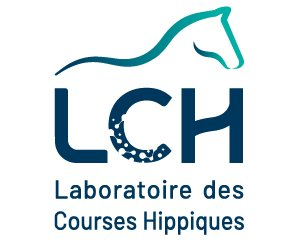
Chargé(e) de Recherche et Innovation (H/F) / Senior Scientist Research & Innovation (M/F)
Chimie - BiochimieConfirmé -
EmploiCDIRef. ABG124941Corteria PharmaceuticalsMassy-Palaiseau - Ile-de-France - France

Jeune Docteur, Chercheur en Biologie Cellulaire & Moléculaire (H/F)
BiologieNiveau d'expérience indifférent

